Essential Oils to Avoid Using Around Your Dog
Essential oils have gained popularity for their soothing scents and potential health benefits, but did you know that some of these aromatic compounds can pose serious risks to your furry friend? In this blog post, we’ll delve into the world of essential oils to avoid using around your dog, ensuring that you make informed decisions to keep your canine companion safe and healthy.
Key Lessons
- Exercise caution when using essential oils around pets to avoid toxicity and health risks.
- Certain essential oils such as tea tree oil, cinnamon, citrus oils, wintergreen and sweet birch are harmful to dogs and should be avoided.
- Consult a veterinarian before use for safe practices with alternative non-toxic remedies available.
Understanding Essential Oils and Pet Safety
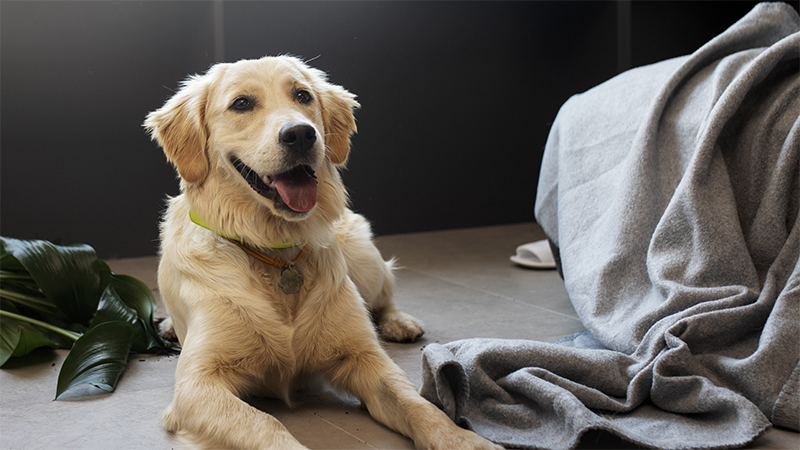
Essential oils are volatile molecules extracted from plants, imparting each plant’s unique fragrance. They offer a myriad of health benefits, including:
- Aromatherapy
- Alternative medicine
- Cleaning products
- Air fresheners In addition to these, other essential oils can also provide various benefits.
However, pet owners must exercise caution when using essential oils around their dogs, as some can be toxic or cause various health issues.
Many essential oils are safe for humans but can pose risks to pets, especially dogs and cats. Pet owners often use essential oils to enhance their pet’s well-being, addressing issues such as anxiety, skin problems, and flea and tick prevention. However, understanding which dangerous essential oils are harmful to pets is significant, as some may be considered essential oils toxic.
While some essential oils, such as lavender oil, lemongrass, and chamomile, are considered safe for canine consumption when used to diffuse essential oils in essential oil diffusers, it is always recommended to consult a veterinarian prior to use. This ensures that you are making the best decision for your pet’s health and safety.
The Hidden Dangers of Certain Essential Oils for Dogs
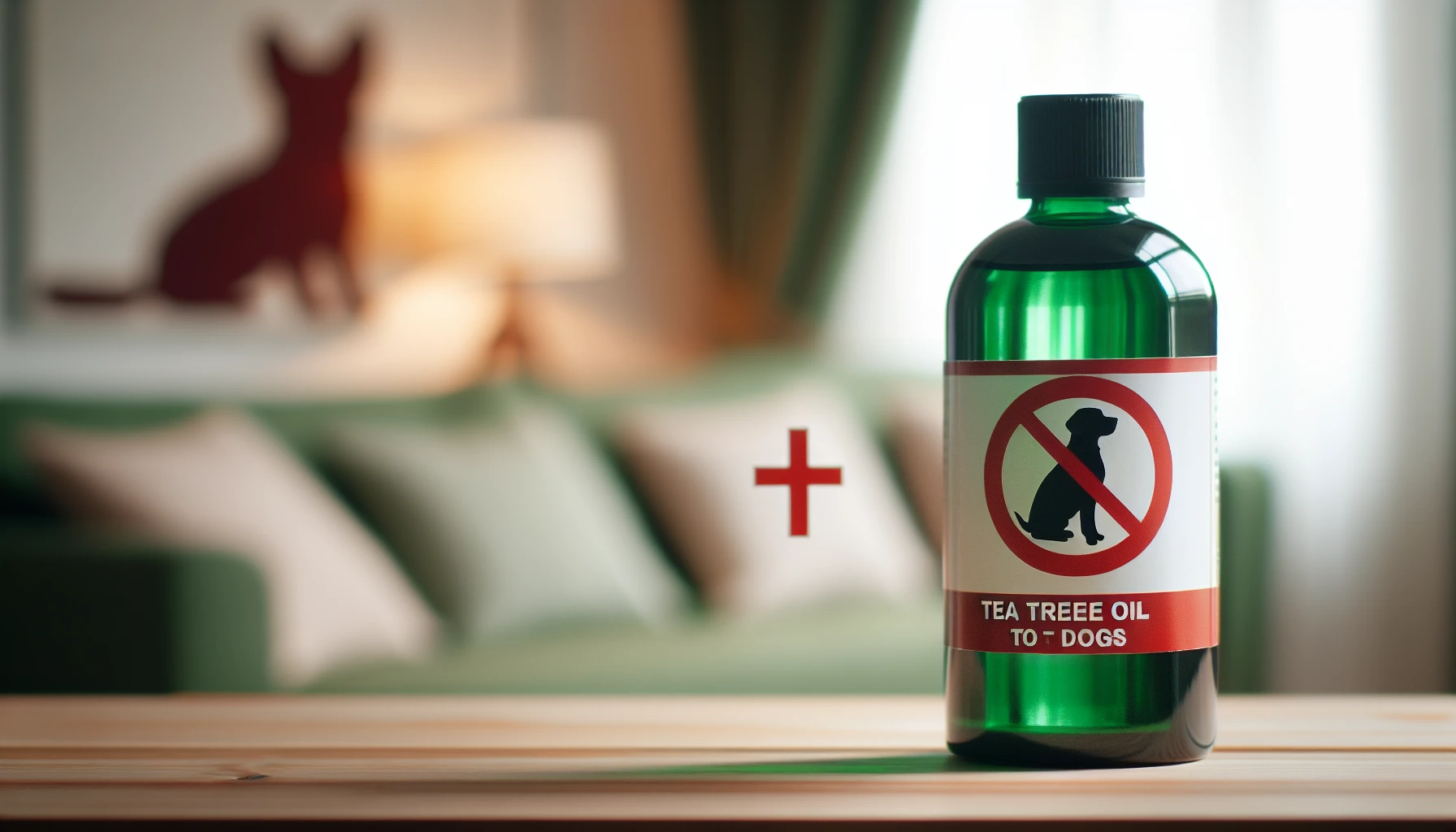
Certain essential oils can pose risks to dogs, causing skin irritation, respiratory issues, and even toxicity if ingested or applied topically. Used improperly, some essential oils may cause changes in behavior, adverse central nervous system effects, and respiratory difficulties. Being cautious and knowledgeable about the potential hazards linked to essential oils for your dog is necessary.
Dr. Janet Roark, a veterinarian, emphasizes the importance of safety guidelines when using essential oils around pets. Cats, for example, are significantly more sensitive to the effects of essential oils than dogs, including rosemary essential oil. The same caution should be exercised when using essential oils around dogs, as they can also experience negative effects.
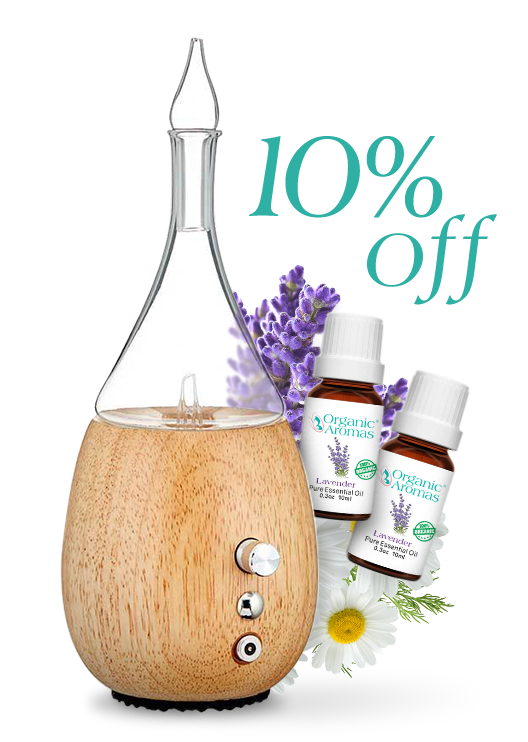
Join Now and Get a Coupon for 10% Off!
In the upcoming sections, we will focus on specific essential oils detrimental to dogs, including their potential effects and symptoms. Being informed about these dangers will help you make responsible decisions and ensure your dog’s safety.
Essential Oils Harmful to Your Canine Friend

Certain essential oils that are detrimental to dogs include:
- Tea tree oil
- Cinnamon
- Citrus oils
- Wintergreen
- Sweet birch
These oils, including coconut oil, can trigger various adverse effects, which will be discussed in greater detail in the upcoming subsections.
Tea Tree Oil: Highly Toxic to Dogs
Tea tree oil is highly toxic to dogs and can lead to central nervous system toxicity if ingested or applied topically. Exposure to tea tree oil can result in the following symptoms:
- Ataxia
- Salivation
- Lethargy
- Coma
- Tremors
- Dermatitis
- CNS depression
- Paresis
- Vomiting
As little as 7-8 drops (10-20 mL) of 100% tea tree oil applied to the skin can be fatal to dogs. It is important to avoid using tea tree oil near dogs to prevent these harmful effects.
Recognizing the dangers of tea tree oil and refraining from its use around your dog can aid in preventing potential health problems.
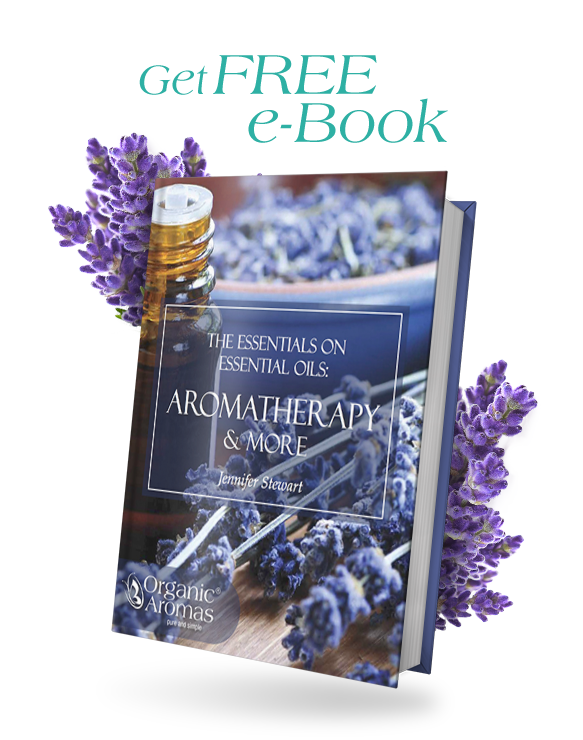
Sign Up to Get Your FREE
e-Book Here…
Cinnamon and Citrus Oils: Irritants and Sensitizers
Cinnamon and citrus oils can provoke skin irritation and sensitization in dogs, resulting in discomfort and potential health issues. Indicators of skin irritation and sensitization in dogs caused by these oils may include:
- Vomiting
- Diarrhea
- Liver disease
- Low blood pressure
- Lethargy
- Depression
- Drooling
- Tremors
- Wobbliness
Diffusing cinnamon and citrus oils in the home can have an impact on dogs, as these oils can be toxic and may cause irritation or sensitization when ingested or when they come into contact with the dog’s skin. To ensure your dog’s safety, it’s advisable to abstain from using cinnamon and citrus oils around them.
By understanding the potential dangers of cinnamon and citrus oils, you can make sensible decisions about their use and safeguard your dog’s health and safety.
Wintergreen & Sweet Birch: Deadly Even in Diffusers
Wintergreen and sweet birch oils can be lethal to dogs, even when utilized in diffusers, owing to their high concentration of poisonous compounds, such as methyl salicylate. These oils can have a rapid effect on a dog, even with minimal dosage.
Negative respiratory effects, such as aspiration pneumonia, can arise from inhalation of the diffused oils. Symptoms of poisoning from wintergreen and sweet birch oils in canines may encompass:
- Vomiting
- Diarrhea
- Weakness
- Difficulty breathing
- Tremors
- Ataxia (difficulty walking)
- Drooling
- Lethargy
- Alterations in behavior
To shield your dog from the potential risks of wintergreen and sweet birch oils, it is important to consult a veterinarian before using any essential oils around your dog.

Safe Practices When Using Essential Oils Around Pets

To ensure pet safety, essential oils should be used sparingly, kept out of reach, and not applied directly to dogs without veterinary consultation. By taking into account the type of oil and how it’s used, you can ensure your pet’s safety.
Keep essential oils out of reach of curious paws, use them in cleaning only when the dog is not present, and refrain from applying any essential oil or herbal product directly on or in the dog. Applying essential oils directly on dogs without consulting a veterinarian is not recommended; instead, always consult with a veterinarian before utilizing any essential oil or herbal product on your dog.
Following essential oils safety measures ensures the essential oils safe usage for the health and safety of your dog while you continue to enjoy the benefits of essential oils.
Alternatives to Potentially Toxic Essential Oils
Pet owners may wish to explore alternative, non-toxic essential oils or other natural remedies for their dogs, such as:
- Turmeric
- Cedarwood
- Frankincense
- Copaiba
- Arborvitae
- Petitgrain
- Lemon
- Peppermint
- Lavender
- Chamomile
- Myrrh
However, it’s important to seek advice from a veterinarian before using any essential oils on or around your dog, as inhaling essential oils can be risky.
Various natural remedies can also be employed for dogs, such as:
- Epsom salt soaks
- Acupuncture
- Aromatherapy
- Flower essences
- Chiropractic
- Herbal medicine
- Homeopathy
- Aloe vera
- Calendula flowers
- Ginger
- Goldenseal
- Milk thistle
- Valerian
- Chamomile
- California poppy
By exploring these alternatives, you can provide your dog with safe and effective treatments.
Keep in mind, always seek advice from a veterinarian before using any alternative treatments to guarantee the best result for your dog’s health and safety.
How to Respond to Essential Oil Poisoning in Dogs

In instances of essential oil poisoning in dogs, immediate veterinary help is necessary. Providing information on the specific oil involved can help determine the appropriate treatment. Common symptoms of essential oil poisoning in pets may include hypothermia, depression, and nervous-system related weakness or unsteadiness.
If your pet exhibits an adverse reaction to essential oils, contact your veterinarian immediately. Be prepared to inform them of the type of oil that caused the reaction and the form of exposure, such as licking, skin contact, or inhalation. In cases of respiratory distress or seizures resulting from essential oils, seek immediate veterinary care.
Recognizing the signs of essential oil poisoning and responding quickly can help guarantee the best possible result for your pet.
Summary
While essential oils can offer various benefits, it’s crucial for pet owners to be aware of the potential risks and dangers they can pose to dogs. By understanding the harmful effects of certain essential oils, practicing safe usage, exploring alternative remedies, and responding promptly to potential poisoning, you can protect your canine companion and ensure a healthy, happy life together.

Join Our Exclusive Member Club to get Big Discounts!
Frequently Asked Questions
What essential oils are bad to diffuse around dogs?
It is best to avoid using essential oils such as eucalyptus, tea tree oil, cinnamon, citrus, peppermint, pine, wintergreen and ylang ylang in diffusers around pets, as they are toxic to them. Lavender can be used but only when applied to bedding.
What essential oils are safe for dogs to smell?
Safe essential oils for dogs to smell include lavender, frankincense, chamomile, and sweet marjoram.
Can I use essential oils on myself around my dog?
Essential oil diffusers should be used cautiously or avoided altogether around pets due to their sensitive respiratory systems. If you wish to use essential oils on yourself, make sure they are fully absorbed into your skin or washed off before coming into contact with your pet.
How can I safely use essential oils around my dog?
When using essential oils around your dog, use sparingly, keep them out of reach, and avoid applying directly to the dog without veterinary consultation.
Are there any non-toxic essential oil alternatives for dogs?
Yes, there are non-toxic essential oil alternatives for dogs, such as turmeric, cedarwood, frankincense, copaiba, arborvitae, petitgrain, lemon, and peppermint.

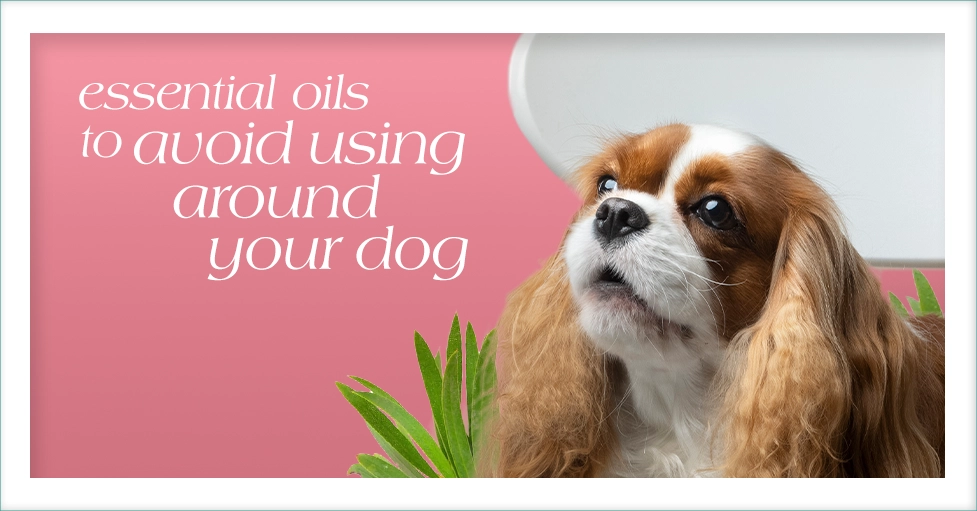



Should you tell, that you are not right.
Very interesting.
I was putting patchouli essential oil and lavender essential oil on last night and my dogs accidentally got some on them one threw up the other 3 are just acting kinda lazy this morning should I be worried
Please give me a recipe for flea and tick prevention using eucalyptus oil. This seems to be the best one for this snd should I use organic? Is the Latin name the one to look for?
Young Living is one of the worst essential oil brands on the market. They refuse to publish the chemical analysis of their trash oils so someone else did it independently. Guess what? They are full of synthetic chemicals and poisonous “fragrance”. Don’t believe me? Use your stupid, propaganda spewing phone to actually look something up. So is DoTerra. People need to stop being so dumb and employ critical thinking methods into their every day lives.
It’s 2022…. Now, isn’t this true for our entire nation right? Critical thought? You are censored if you have enough critique in your thoughts….
Do be careful defusing essential oils around pets. When I first got into oils, I happen to work with a Young Living distributor, so that is what I chose.
I set up my diffuser in my bedroom and excitedly started diffusing. My dog sleeps in my bedroom with me at night, with the door closed. It never occurred to me that I was trapping him overnight with these oils. I noticed a change in his behaviour almost immediately. He started having accidents in the house and getting into things… Two things that he has never done.
I stopped diffusing the oils in my bedroom, and his behaviour went back to normal. Coincidence? Possibly.
I should mention that I was not diffusing any of the oils that are mentioned in this article as being potentially dangerous. I was mostly using JuvaFlex or citrus.
When I brought this up to my distributor, she laughed it off, telling me that if animals were getting sick from essential oils, it is probably because people were using lower quality oils. But wouldn’t it make sense that a better quality oil would be more potent, and therefore potentially more dangerous to an animal?
Needless to say… Do not rely on a distributor who is trying to sell you a product for good advice. Do your own research and watch your own animal.
What essential oil can I spray around to kill germs fthat won’t harm my small dog
I’ve never quite understood a website leaving a question area but never choosing to answer people’s questions ask! Why waste people’s time? These poor people are worried about their furbabys! Too start I use peppermint on myself & in my super hot bath water I have 2 chihuahua’s & they’ve never had a reaction once to peppermint oil the smallest of the 2 is 10lbs. I also put a couple drops of tea tree in my water sometimes which also has never effected my dogs, that being said I read a story of a woman that defused tea tree not knowing it was a danger to dogs, her dogs became delirious & didn’t even recognize her, if she’d not caught the issue & stopped informed by her vet it would have caused irreversible damage or death! Also before taking advice from a site trying to sell oils your better off to join an essential oils group online & talk to other pet owners! I’ve learned more from my local pet supply store than my vet about my dog chicken allergy! Sad people questions weren’t answered! I hope this helps the woman with the chihuahua question!
When I put coconut oil on dog rash he just licks it off. How do I apply tick repellent essential oils without him licking it?
I use a diffuser at night it helps me sleep but I have a 12 week old puppy she sleeps in my room now I’m worried I use lavender on guard and frankincense All by doeterra
All you people asking for health advice without being a patient, you won’t get an answer from Organic Armoas. They are not vets. Discuss this with an Eastern/Western vet in your area.
Some of you guys are either not worried by spelling or not smart enough to spell words correctly. Definitely not trusting anyone who looks like they are dumb. :/
I am not using essential oils on my dog. Was wondering if inhaling the fumes from the breathe easy mixture my husband is using for his cold
i have a shih zue and maltese- i have COPD, emphsema and on oxyegn- i have a chronic sinus infection and wanted to boil some water and add a couple drops of thyme and breathe in to help my sinus’s- will this harm my pups- please rely ASAP thank you for your kindness
I put out drops of peppermint oil on cottonballs to deter mice from staying in my house. Will it hurt my small chihuahuas to breathe this. Plz answer back promptly.
Can I give my dog Oregano Oil Capsules & Thyme Oil capsules to kill bad bacteria in gut & small bowel, Helicobacter & SIBO?
I love clove and have used it in my diffuser. With 3 dogs, I did not see Amy negative reaction. I also did not know it was not safe for them until today! TY for the great info.
Hi I have a Yorkshire terriers mother always gets stressed especially when she seee her lead for walks then sets other dogs of barking plz can you help
I have Ravintsara and would like to diffuse it in my bedroom during this flu season. I didn’t see it on the list for dogs however I want to make sure because they sleep in the bedroom. They are 20 lbs and 25 lbs. mini aussies.!
What essential oil will help dogs with flease
What essential oil it will be good for my puppy to stop i scratching and biting
I have a blind dog that keeps running into to the walls what essential oil can I use on my walls that will help her not run into the walls. Please help I love my little dog
Tea tree can kill you dog and do can clove Wintergreen.. slim..thyme is not good there’s few more …. Pepmint is good lavender is good for your dog farkin is good… For dogs long grass is ok….. There’s a list … Be careful… Good luck
Is peppermint oil bad for dogs if I use it in my diffuser ?
I ordered some oils and diffuser, I have an 80 lb American Bulldog, anything I shouldn’t use or is it just trial and error with what he approves of?
A child that I care for 3 days a week always has a concoction of essential oils on and my dog hides for a good couple of hours when she comes in. What smell could be bothering him?
Is peppermint oil bad for my dog if I use it in aromatherapy
What essential oils should I not use in my Diffuser around my dogs? They are both over 60 lbs.
Staffie 13 yrs old..
What oils are not safe to diffuse around small dog eight pounds
I used Tea Tree Oil in my diffuser the other day with other oils not realizing Tea Tree Oil was not good for dogs. The next morning when one of my dogs woke up she went down the stairs ever so slightly, she took one step at a time when she normally runs down. The night before I had a diffuser going with tea tree oil, grapefruit and lemon. Today I read that tea tree oil is not good for dogs even if it is in a diffuser. Lesson learned.
What essential oils are safe to use in a diffuser around small breed dogs?
Can I safely use tea tree oil in my home without harming my dog? E.g., in cleaners or in my nebuliser?
Thank you for this information. Is it safe to diffuse these oils around my dog? I usually only use 1-4 drops of an essential oil in my diffuser? I sometimes diffuse thyme and/or oregano when I’m feeling sick and am wondering if it’s okay to do so with my new doggie family member.
Thank you for the information about using Essential Oils safely around pets. I have 2 dogs and this will help me know which oils to use and not to around them. I appreciate you sharing this information with us because when it comes to our furbabies this information is so necessary to know.
What would be a good essenial oil for joint pain in a dog?